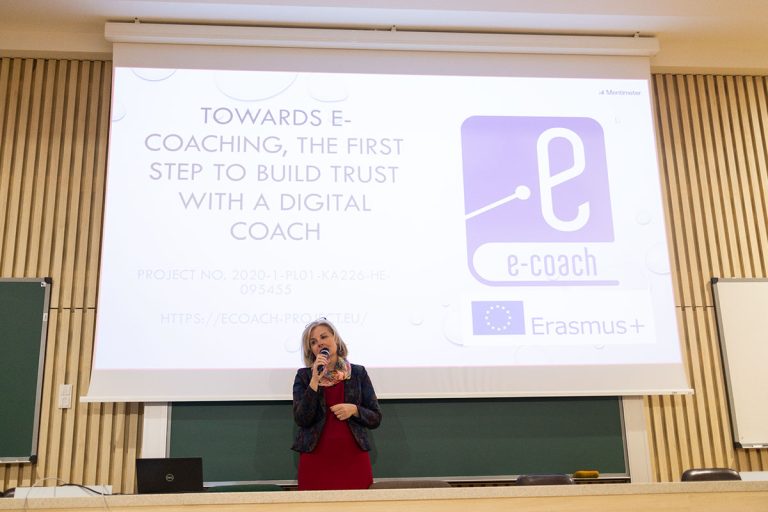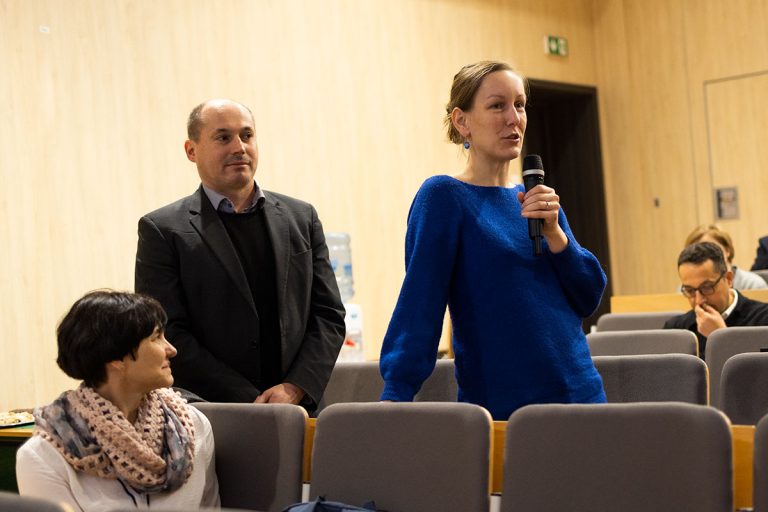How to effectively engage students with distance learning? This question has affected nearly everyone involved in teaching and learning at higher education institutions in Europe and worldwide since the outbreak of the CoViD-19 pandemic.
Therefore, it was the aim of the two-year Erasmus+ project (2021-2023) “Towards e-coaching: The first step to build trust with a digital coach” to develop innovative didactic methodologies and tools for distance learning (e-coach), which will create the basis for building trust between the parties involved in educational processes, to create an integrated e-learning platform on the use of e-coaching methodologies and tools, including an activation program for teachers, and to conduct pilot e-coaching courses in mathematical analysis, algebra, programming and entrepreneurship.
The final dissemination event was hosted from 21-22 February 2023 in Bialystok (Poland), which attracted participants from different European countries on-site and online. During the two-day event, representatives from the four universities involved in the project presented the final results. Besides the project co-ordinator Bialystok University of Technology (Poland), Tampere University of Applied Sciences (Finland) and University of Technology of Crete (Greece), Leipzig University was part of the consortium.

On the first day of the conference Anne Bastian and Sandy Adam from the SEPT Competence Center of Leipzig University presented the final edition of the e-coaching handbook, which offers a variety of e-coaching methods and tools based on the four cornerstones of trust, dialogue, ownership and co-creation to be used in higher education learning environments of the future.

In addition, participants of the conference (both on site and online) got acquainted with dedicated methodology courses for teachers and students, made public on the e-learning platform Coursevo. On the second day of the conference, specialists from Tampere University of Applied Sciences conducted workshops on coaching methodologies in online courses, and specialists from of the Faculty of Computer Science of Bialystok University of Technology presented the results of pilot classes with students using these methodologies.
The project’s approach has great potential to be successful in the African Centre for Career Enhancement & Skills Support (ACCESS) project (2020-2024) as well. Within the capacity building pillar of the project, a toolkit for competence development, e-coaching and the roll-out of the new capacity building programme are key deliverables of ACCESS. In this context, the approach used in the “Towards e-coaching” project is beneficial. The competence development toolkit offers lecturers a wide range of teaching concepts and methods to offer their students different learning opportunities: service learning, intrapreneurial learning and performance training. The toolkit will be implemented via the ACCESS Wiki platform as a knowledge base for faculty of higher education institutions. The ACCESS wiki is available here: ACCESS Wiki